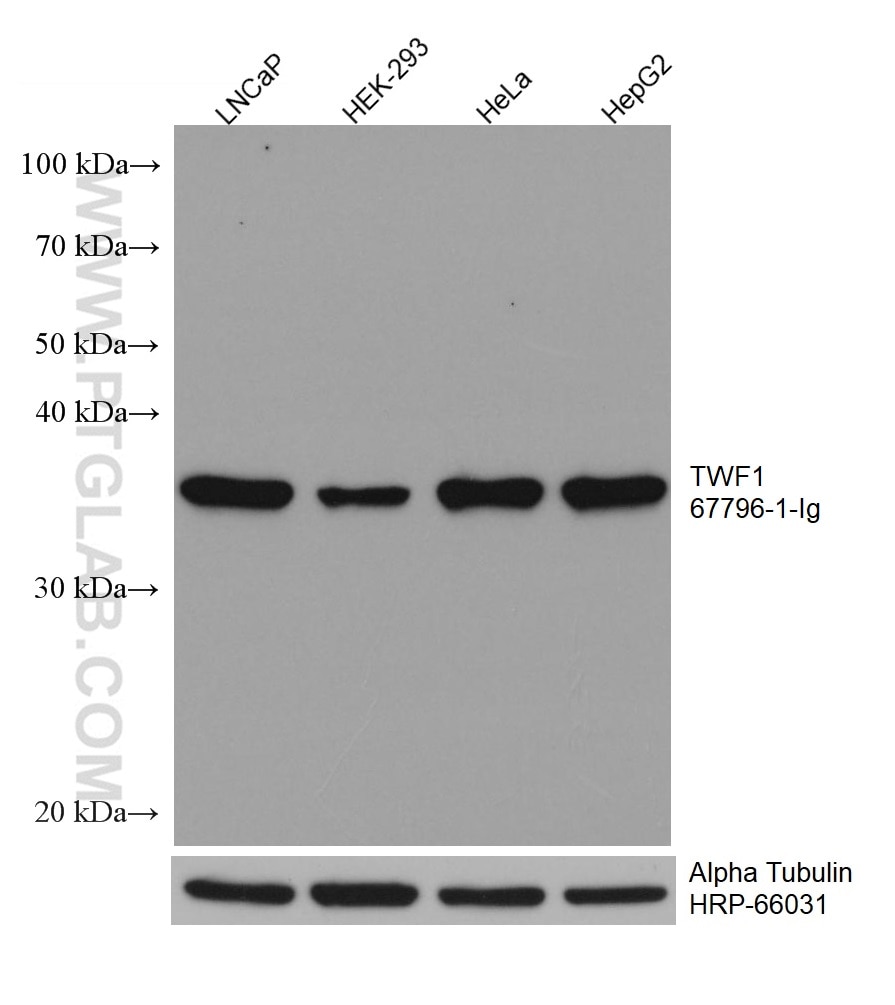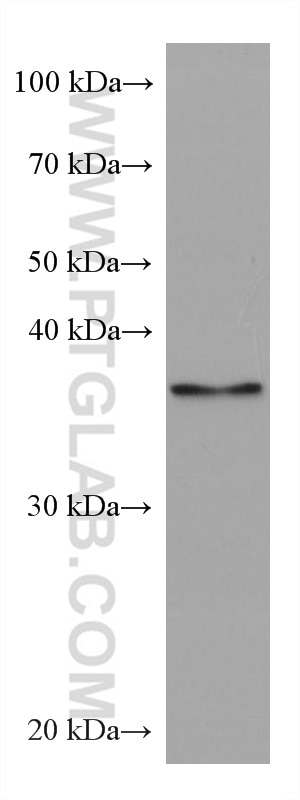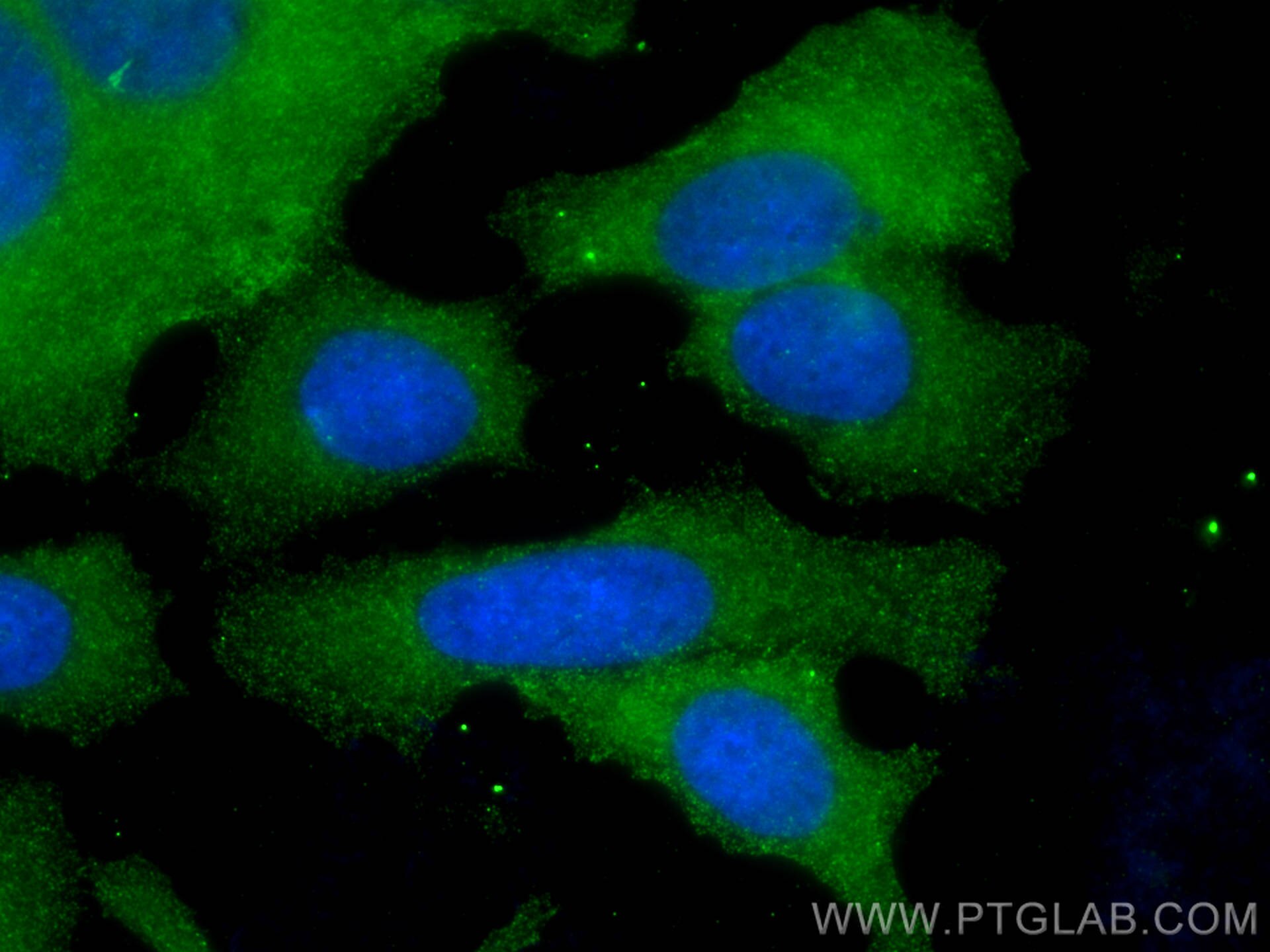Validation Data Gallery
Tested Applications
| Positive WB detected in | LNCaP cells, Jurkat cells, HEK-293 cells, HeLa cells, HepG2 cells |
| Positive IF/ICC detected in | MCF-7 cells |
Recommended dilution
| Application | Dilution |
|---|---|
| Western Blot (WB) | WB : 1:2000-1:20000 |
| Immunofluorescence (IF)/ICC | IF/ICC : 1:200-1:800 |
| It is recommended that this reagent should be titrated in each testing system to obtain optimal results. | |
| Sample-dependent, Check data in validation data gallery. | |
Product Information
67796-1-Ig targets TWF1 in WB, IF/ICC, ELISA applications and shows reactivity with Human samples.
| Tested Reactivity | Human |
| Host / Isotype | Mouse / IgG2a |
| Class | Monoclonal |
| Type | Antibody |
| Immunogen | TWF1 fusion protein Ag28630 相同性解析による交差性が予測される生物種 |
| Full Name | twinfilin, actin-binding protein, homolog 1 (Drosophila) |
| Calculated molecular weight | 368 aa, 42 kDa |
| Observed molecular weight | 36-38 kDa |
| GenBank accession number | BC022344 |
| Gene Symbol | TWF1 |
| Gene ID (NCBI) | 5756 |
| RRID | AB_2918560 |
| Conjugate | Unconjugated |
| Form | Liquid |
| Purification Method | Protein A purification |
| UNIPROT ID | Q12792 |
| Storage Buffer | PBS with 0.02% sodium azide and 50% glycerol , pH 7.3 |
| Storage Conditions | Store at -20°C. Stable for one year after shipment. Aliquoting is unnecessary for -20oC storage. |
Background Information
Twinfilin-1 (TWF1) is an actin-binding protein implicated in cell motility, invasion and migration. Its expression is linked to sensitivity to drugs and cancer progression. Overexpression of TWF1 has been reported in various cancers, including breast cancer and lung cancer.
Protocols
| Product Specific Protocols | |
|---|---|
| WB protocol for TWF1 antibody 67796-1-Ig | Download protocol |
| IF protocol for TWF1 antibody 67796-1-Ig | Download protocol |
| Standard Protocols | |
|---|---|
| Click here to view our Standard Protocols |


